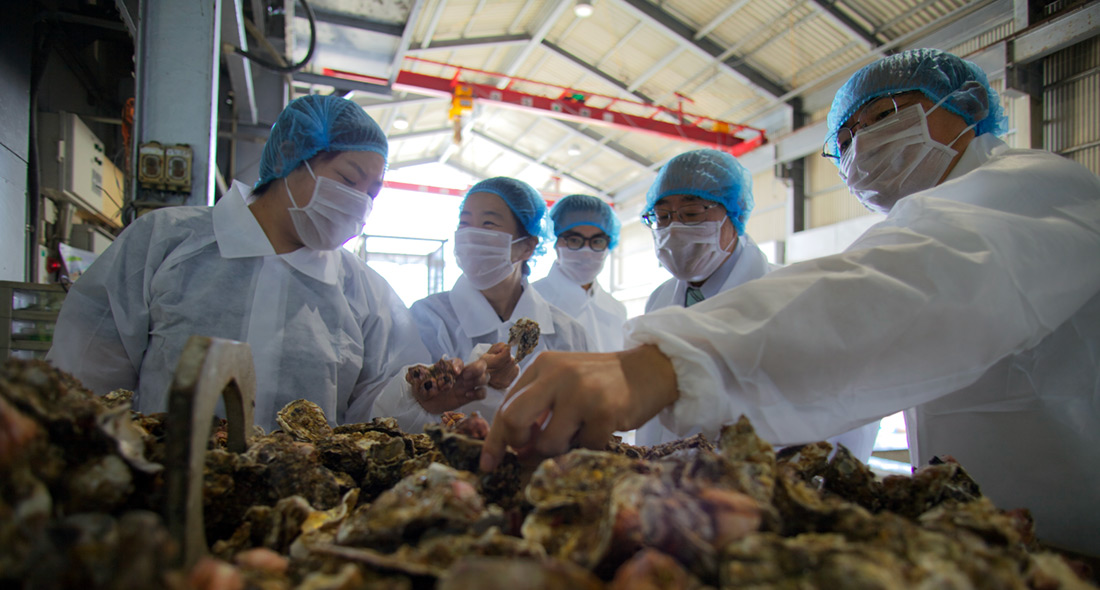First Oyster Fishery Improvement Project Launches in Japan

The anticipated demand for seafood at the upcoming 2020 Tokyo Olympic and Paralympic games continues to drive the growth of sustainable seafood and fisheries initiatives in Japan.
Today, the Japanese Consumers' Co-operative Union (JCCU), fishing and processing company Kurahashijima Kaisan, and the organizations Seafood Legacy and Ocean Outcomes (O2) announced the launch of a new fishery improvement project (FIP) in Japan’s largest oyster producing region (日本語版を読む).
The unique topography, tidal currents and water temperatures in the marine areas of Hiroshima Prefecture make it an ideal location for oyster farming and fishing. The region accounts for approximately two thirds of Japan’s oyster production — or 20,000 tonnes annually — some of which supplies JCCU, Japan’s largest consumer organization comprised of 29 million members.
 Video footage from fishing company Kurahashijima Kaisan shows oyster harvesting methods.
Video footage from fishing company Kurahashijima Kaisan shows oyster harvesting methods.
Established in 1962, the Hiroshima oyster fishery is the oldest in Japan.
Those involved in the oyster fisheries have always focused on quality and safety, but with the Olympics on the horizon, participating project companies want to ensure their oysters are also produced and seen as eco-friendly.
Towards this goal, the FIP fishing companies worked with Seafood Legacy and Ocean Outcomes in 2019 to assess their environmental impacts on the marine environment and then developed a workplan to mitigate those impacts going forward.
These include monitoring fishery impacts on benthic habitats; decreasing fishery interactions with endangered species, such as loggerhead turtles and the Indo-Pacific finless porpoise; transitioning fishery management to precautionary and science-based strategies; and routine project participant progress meetings.
 The Hiroshima region is renowned for its oysters, accounting for roughly two thirds of Japan's oyster production. © Seafood Legacy
The Hiroshima region is renowned for its oysters, accounting for roughly two thirds of Japan's oyster production. © Seafood Legacy
After completing the improvement work, the participating companies will seek Marine Stewardship Council certification so JCCU can sell Hiroshima oyster product to consumers in Japan using the blue MSC logo.
This is the 4th fishery improvement project in Japan working towards MSC certification, all four of which are led by Seafood Legacy and Ocean Outcomes.
Additional Resources: